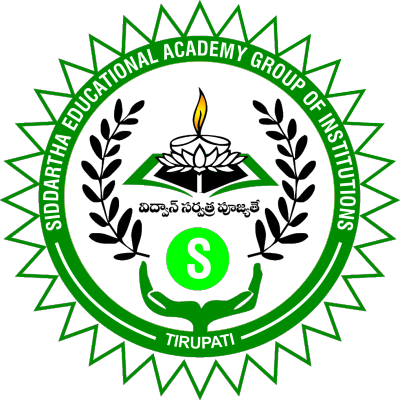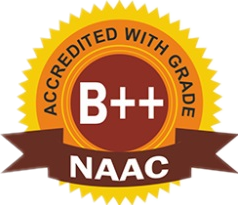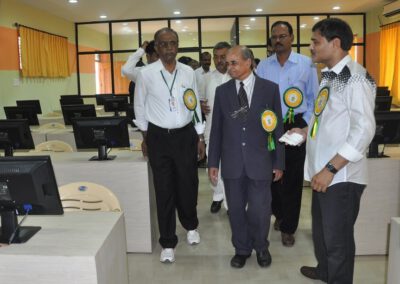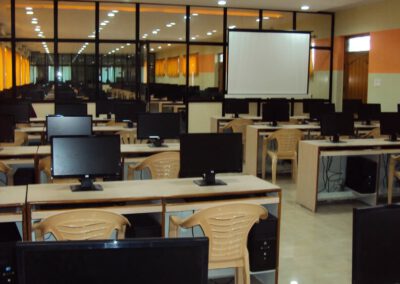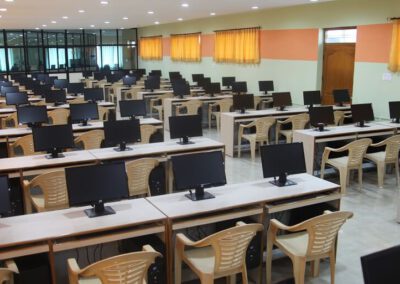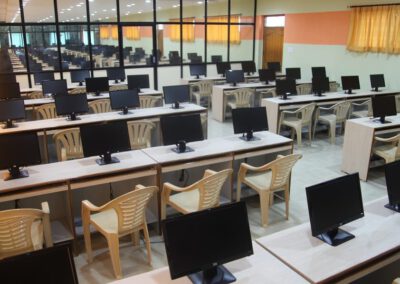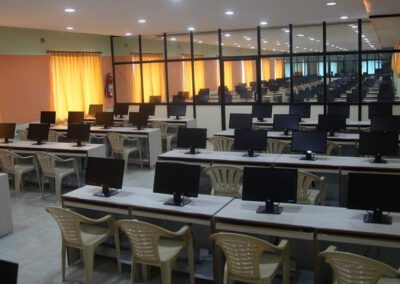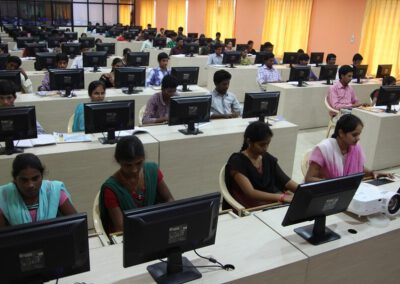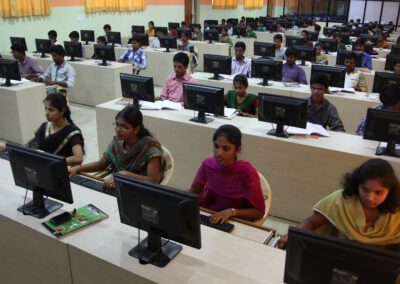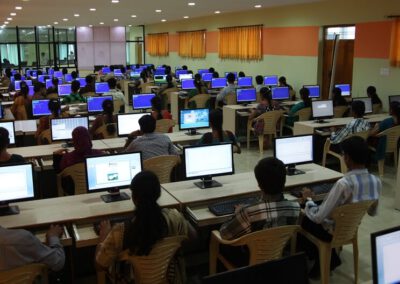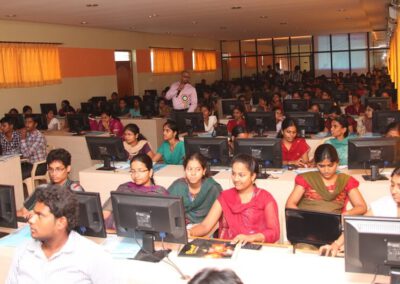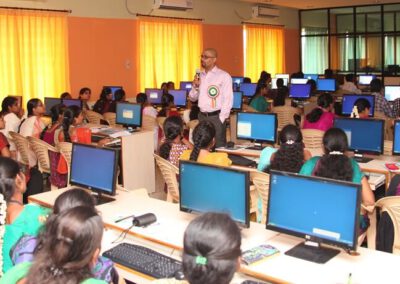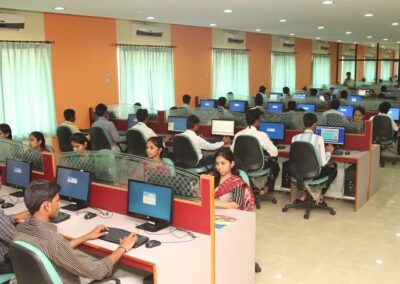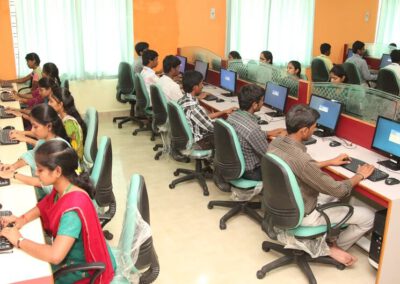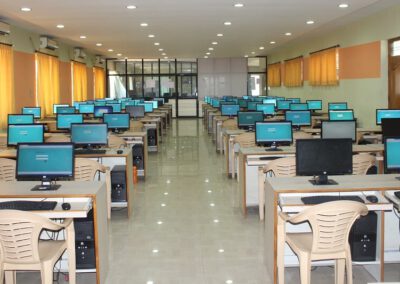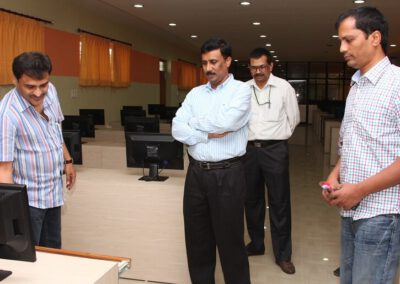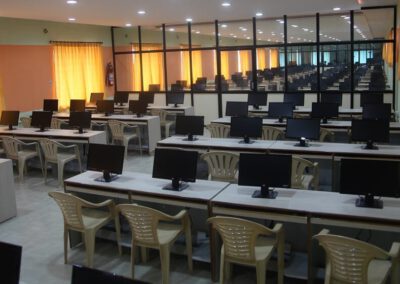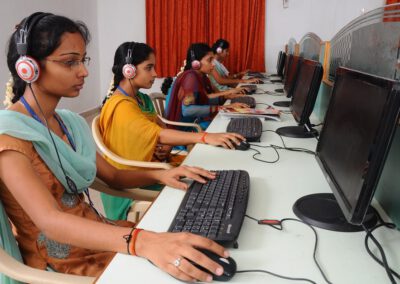Siddartha Educational Academy
Computer Science and Engineering
Computer Science and Engineering graduate is suitably equipped to pursue career in the IT industry, research, or post-graduate studies in the country or abroad. Further through a unique program we promote entrepreneurship in budding engineers.
Computer Science and Engineering (CSE) at SEAT symbolizes the SEAT tradition of excellence as a leader in computer science and engineering. The department is dedicated to education, research and overall excellence.
CSE Graduates capture leading appointments in IT service industries, as well as fuel the Internet, wireless communications, and cross-disciplinary IT Industries. The CSE program at SEAT was started in 2009. Recognized by AICTE and affiliated to JNTUA, Anantapuram the current intake is 120 students.
The CSE Department continues to recruit faculty members with rich experience in academia, industry and research, and support superior research facilities. A large diverse faculty committed to teaching and research teaches CSE classes. Faculty use state-of-art teaching aids to ensure better content delivery and facilitate greater student interaction. Faculty commitment to excellence in teaching has been recognized and honored with numerous engineering and institution teaching awards. In addition to classes, students also have the opportunity to interact with faculty through student mentoring.
Major Events and Achievements
- The CSE Department regularly organizes national Workshops, seminars, student symposia, short-term training program and value-added courses. This provides a wide range of opportunities for faculty and students to bring out their potential and innovative skills in a variety of fields. The department regularly conducts workshops on current trends in computer technology.
Careers
- The CSE Department effectively prepares students to pursue leadership, technical, and management positions in a variety of industries. Students have obtained successful placements at leading companies like Cognizant, Global Edge, Tech Mahindra, IBM etc.
- The future of Computing and IT systems rests here. The department’s mission is to advance, evolve and enhance Computer Science and Software Engineering fundamentals to build the intellectual capital of research and students. The department is witnessing a period of exciting growth and opportunity propelled by the top ranking it achieved recently. CSE boasts a vibrant student body of about 480 undergraduate and 48 postgraduate students and a stellar faculty of professors and lecturers.
VISION:
To become a centre of excellence in the field of Computer Science and Engineering that produces innovative, skillful, socially responsible and ethical professionals.
MISSION:
- To provide a balanced curriculum with engineering fundamentals, modern technologies and research
- To provide opportunities to solve real world problems
- To provide opportunities for the overall personal and social skill development
The Department has 480 Systems with Latest Configurations associated with the following Laboratories:
1. C PROGRAMMING LAB
2. DATA STRUCTURS LAB
3. JAVA PROGRAMMING LAB
4. SOFTWARE TESTING LAB
5. OBJECT ORIENTED ANALYSIS AND DESIGN LAB
6. DATA WAREHOUSING AND MINING LAB
7. WEB AND INTERNET TECHNOLOGY LAB
8. MOBILE APPLICATION DEVELOPMENT LAB
9. PYTHON PROGRAMING LAB
10. DATA BASE MANAGEMENT SYSTEMS LAB
11. OPERATING SYSTEMS LAB
12. GRID AND CLOUD COMPUTING LAB
| Program Educational Objectives (PEOs) | |
| PEO1 | Analyse, design, and develop software solutions that are technically apt, economically feasible and socially acceptable. |
| PEO2 | Exhibit professionalism, communication skills and ethical attitude in their profession and adapt emerging technologies through lifelong learning |
| PEO3 | Address societial needs through sustainable and ethical practices both in employment and/or entrepreneurial career. |
| Program Outcomes (POs) | |
| PO1 | Engineering Knowledge: Apply knowledge of mathematics, science, engineering fundamentals, and an engineering specialization to the solution of complex engineering problems. |
| PO2 | Problem analysis: Identify, formulate, review research literature and analyze complex engineering problems reaching substantiated conclusions using first principles of mathematics, natural sciences, and engineering sciences. |
| PO3 | Design/development of solutions: Design solutions for complex engineering problems and design system components or processes that meet the specified needs with appropriate consideration for the public health and safety, and the cultural, societal, and environmental considerations. |
| PO4 | Conduct investigations of complex problems: Use research-based knowledge and research methods including design of experiments, analysis and interpretation of data, and synthesis of the information to provide valid conclusions |
| PO5 | Modern tool usage: Create, select, and apply appropriate techniques, resources, and modern engineering and IT tools including prediction and modelling to complex engineering activities with an understanding of the limitations. |
| PO6 | The engineer and society: Apply reasoning informed by the contextual knowledge to assess societal, health, safety, legal and cultural issues and the consequent responsibilities relevant to the professional engineering practice. |
| PO7 | Environment and sustainability: Understand the impact of the professional engineering solutions in societal and environmental contexts, and demonstrate the knowledge of, and need for sustainable development. |
| PO8 | Ethics: Apply ethical principles and commit to professional ethics and responsibilities and norms of the engineering practice. |
| PO9 | Individual and team work: Function effectively as an individual, and as a member or leader in diverse teams, and in multidisciplinary settings. |
| PO10 | Communication: Communicate effectively on complex engineering activities with the engineering community and with society at large, such as, being able to comprehend and write effective reports and design documentation, make effective presentations, and give and receive clear instructions. |
| PO11 | Project management and finance: Demonstrate knowledge and understanding of the engineering and management principles and apply these to one’s own work, as a member and leader in a team, to manage projects and in multidisciplinary environments. |
| PO12 | Life-long learning: Recognize the need for, and have the preparation and ability to engage in independent and life-long learning in the broadest context of technological change. |
| Program Specific Outcomes (PSOs) | |
| PSO1 | Apply acquired knowledge of programming languages, data structures, algorithms and standard software engineering principles to devise effective solutions for intricate computational issues. |
| PSO2 | Design and develop efficient web and mobile based applications under realistic constrains. |
| PSO3 | Apply core and advanced concepts of database management systems, data mining and machine learning to devise engineer solutions for practical problems |
Admissions
For more details on admissions and seat availability ..contact here
